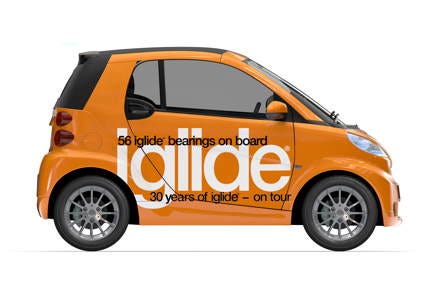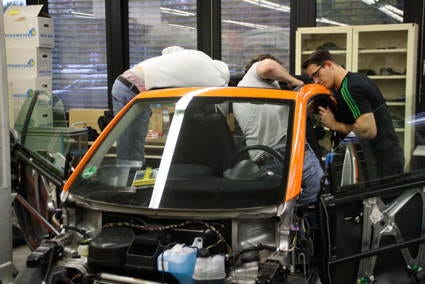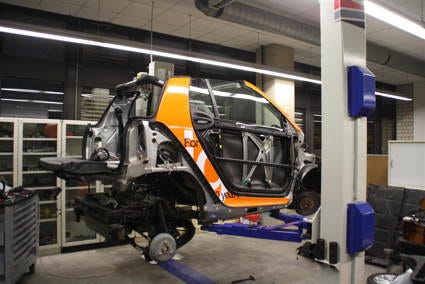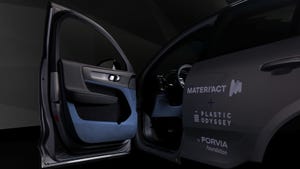It's 30 years since iglide plastic bearings from igus (East Providence, RI) debuted in the auto sector and to celebrate, the company has retrofitted a vehicle with 56 iglide bearings, employing them throughout the car in components such as pedals, the alternator, window regulators, the convertible top, and the gearshift.
February 25, 2014
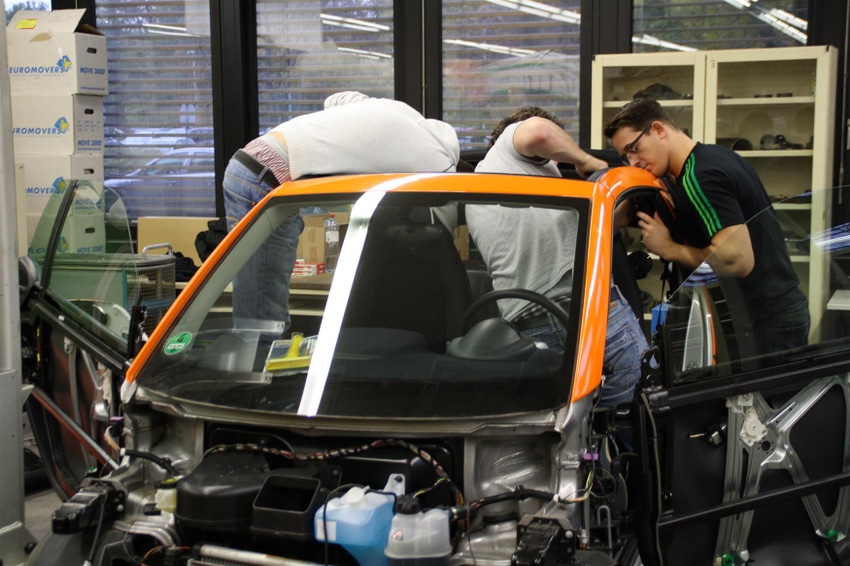
It's 30 years since iglide plastic bearings from igus (East Providence, RI) debuted in the auto sector and to celebrate, the company has retrofitted a vehicle with 56 iglide bearings, employing them throughout the car in components such as pedals, the alternator, window regulators, the convertible top, and the gearshift.
|
30% of the world's vehicles produced globally reportedly contain plastic bearings from igus. |
|
The car was retrofitted with 56 igus bearings over the month-long rebuild. |
|
During the retrofit process, the car was completely dismantled to access all replaceable bearings. |
A variety of base plastics are used in our iglide materials. These base materials are then homogeneously blended with solid lubricants and fibers or filaments. The most common low-cost materials are polyamide (PA), ultrahigh-molecular-weight polyethylene (UHMWPE), and fluoropolymers such as DuPont's Teflon. High- engineering plastics such as polyimide (DuPont's Vespel), polyamide-imide (PAI) (DuPont's Torlon, and polyetheretherketone (PEEK) are sometimes used for extremely high loads and temperatures, but these can be cost prohibitive.
Depending on the type of plastic bearing, part weight can be much lighter than its metallic counterpart, about 60-80% lighter when compared with bronze, for example. A PTFE metal-backed bearing, meanwhile, is about 40% lighter.
Igus estimates that about 30% of vehicles produced contain its bearings. 200 million plastic iglide bearings were installed in cars and trucks last year. Now igus is putting them to the test on a 20-country, nine-month world tour. Starting this month in India, the car will be shipped across oceans, and then driven around continents, stopping along the way at igus subsidiaries, partners, customers, trade shows, expos, and manus winners, connecting igus worldwide.
Igus' manus competition seeks innovative and challenging applications that use self-lubricating, maintenance-free polymer bearings to improve technology and reduce costs. Winners will receive cash prizes totaling over $11,000.
In late July, the car will make its way to North America, beginning its tour of the US and Canada in Anchorage, Alaska, where it will make its way from ocean to ocean through to early October.
The round-the-world journey will be a test of the iglide plastic bearings installed within the car. iglide bearings are wear resistant due to their tribologically optimized plastic compound, designed to withstand high stresses. Such features support long service life of the vehicle components. iglide bearings are already used in millions of cars produced annually, in surprising applications like moving the seats or in the throttle valves.
Specific features of iglide bearings including resistance to dirt, oil, and chemicals, pressure resistance, and shock absorption make them excellent for use in the chassis, engine compartment, and gearbox. For door hinges and other moving parts, iglide bearings are also said to be a great fit, as they are corrosion-free, self-lubricating, and silent. Low-weight plastic bearings also contribute to light weight automobile construction. This reduces fuel consumption, lessening impact on the environment. iglide bearings are also cost-effective and offer economic solutions for mass production.
iglide bearings are also a solution for industries such as medical and food-packaging, in agricultural machinery, and machine tools.
You May Also Like
